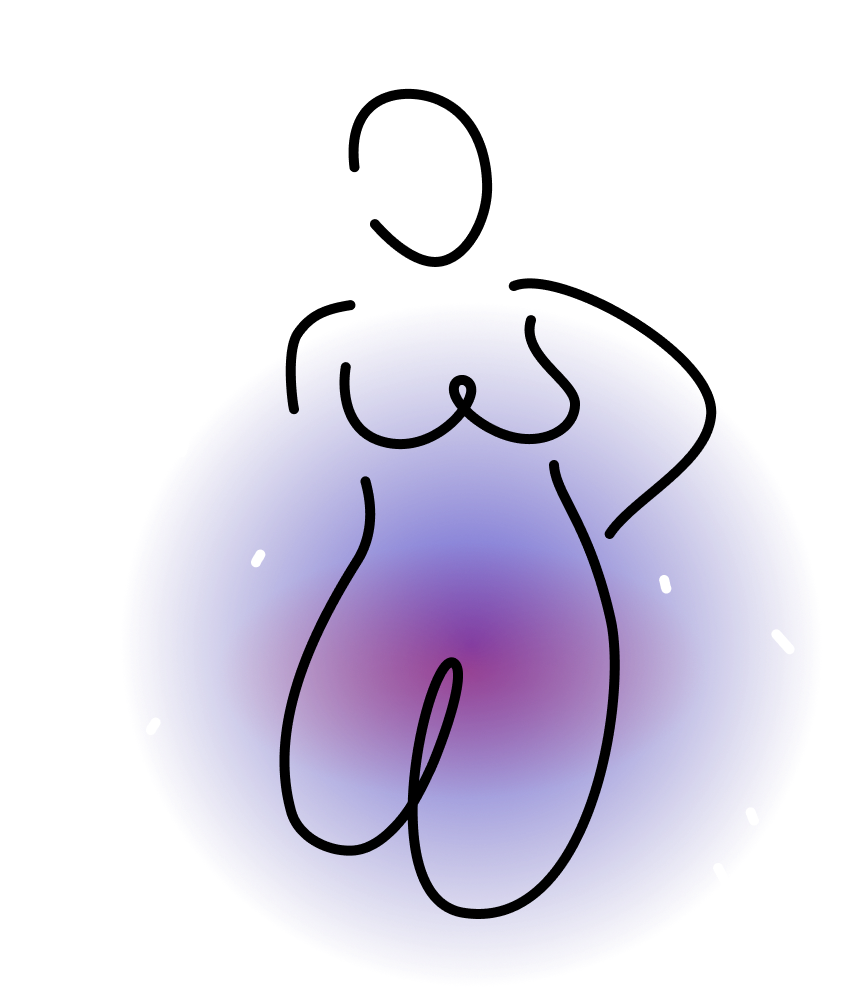The Reluctant Pacer
You Know You're This When
You have a moment when it feels like you’re watching your life happen from above and can’t even LOL at a bad cat meme.
You’re the most unique stress type and are also one of the most sensitive. You fall on the Pacer side so it can be hard for you to mobilize the energy to do the basics, like roll out of bed in the morning More, since you find it hard to be fully engaged with the external world, you tend to distance yourself from your environment and can come off as emotionally flat or disengaged. Essentially, it’s as though you’re looking at yourself through a foggy mirror — so find a way out of your internal haze to re-engage.
Where You Land in the World of Female Stress

Take the quiz to find out where on the chronic stress spectrum you fall today — and what you can do to move towards a state of balance.
How Stress Manifests in Your Body

Here are science-backed recommendations that may help Reluctant Pacers manage chronic stress. To tailor these recommendations to your health history & lifestyle, talk to your provider at the Tia Clinic where you can connect your Stress Signature to care.
- Eat easily digestible and high-fiber foods like peas, brussel sprouts, raspberries, spinach and whole-wheat pasta and bread.
- Eat foods that provide rich sources of vitamin A, E, carotene, and lycopene, like tomatoes, watermelon, carrots, squash, green leafy vegetables, and nuts.
- Stay hydrated to promote healthy digestion! As healthy poop is 75% water, try and drink 8 glasses of water to stay regular and avoid constipation.
- Avoid Nightshades, like eggplant, cayenne, and chili peppers. They may irritate your digestive track’s tissue lining because they contain high levels of alkaloids.
- Limit caffeine and alcohol to avoid aggravating your sensitive colon..
- Eating at the same time every day is an easy way to maintain strong circadian rhythms. Your body likes routine and regularity.
- Scheduling your workouts at the same time every day is another way to regulate circadian rhythms — so you feel refreshed and fall asleep easily.
- Sweat with your friends.
- Try and spend 30 minutes outside or until you feel the warmth of the sun on your skin. Sunlight triggers the release of important compounds in your body.
- Integrate yoga and Tai Chi: both improve things like asthma, premenstrual syndrome, and insomnia.
- Make extra time to prioritize your self-care to help balance your hormonal, immune, and neurological pathways.
-
Use the ABCDE method to control your own emotional experiences by thoughtfully reviewing your patterns of thinking and modifying them in a way that results in less emotional distress. Write down the:
- A: Activating event that triggered stress
- B: Beliefs that went through your head
- C: Consequences you are experiencing
- D: Disputing negative thoughts
- E: Energize yourself with effective new approaches
- Take up playing an instrument - it exercises your brain and enhances the immunological response.
- Reading a novel activates parts of your brain responsible for empathy and seeing the world from a new perspective.
- Body and facial massages can improve your alertness, reduce pain, and create a sense of euphoria.


 copy link
copy link